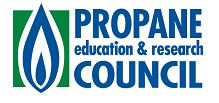Responding to California’s mandate to ban internal combustion engine forklifts in the near future, the Propane Education & Research Council has released a new environmental comparative analysis comparing greenhouse gas and nitrogen oxide emissions between propane and electric forklifts. Research reveals that propane forklifts provide a pathway to decarbonization today. Emissions from propane forklifts provide a smaller carbon footprint than electric forklifts under several conditions.
“Electrification is often touted as the only solution to full decarbonization, overlooking how electricity is generated, stored, transmitted, and consumed,” said author Dr. Gokul Vishwanathan, Director of Research and Sustainability at PERC. “A single-energy mandate isn’t sufficient or realistic and the truth is, propane and renewable propane can lead to immediate decarbonization of this sector.”
The comparative analysis presents the following findings:
A zero-emissions forklift does not exist.
Hybrid electric forklifts, with both conventional and renewable fuels, emit less CO2 than battery-electric forklifts.
For most states, NOx emissions from propane-powered forklifts engines can be less than half that of battery-electric forklifts powered by the electric grid.
Approximately 314,000 ICE forklifts are operating in California alone. Replacing all ICE forklifts in the state with battery-electric forklifts would require nearly 10 GWh/day of additional charging capacity.
Download PERC’s new analysis or visit Propane.com/Research-Development to learn more.
Electrification as a means of decarbonization sounds attractive but that is not the reality without consideration of complete lifecycle emissions. Regulatory agencies should conduct detailed emissions lifecycle analyses on technologies before considering a ban on specific technologies.
Achieving decarbonization and reducing criteria pollutants is possible as renewable fuels and high-efficiency engine technologies continue to innovate. As good stewards of environmental justice, we need to ensure that we are not displacing the problem but are indeed solving a problem for the greater good of humanity and all life on Earth.
Reach out to the National Propane Gas Association or your state propane gas association to support ongoing efforts and build awareness about the benefits of propane forklifts.











